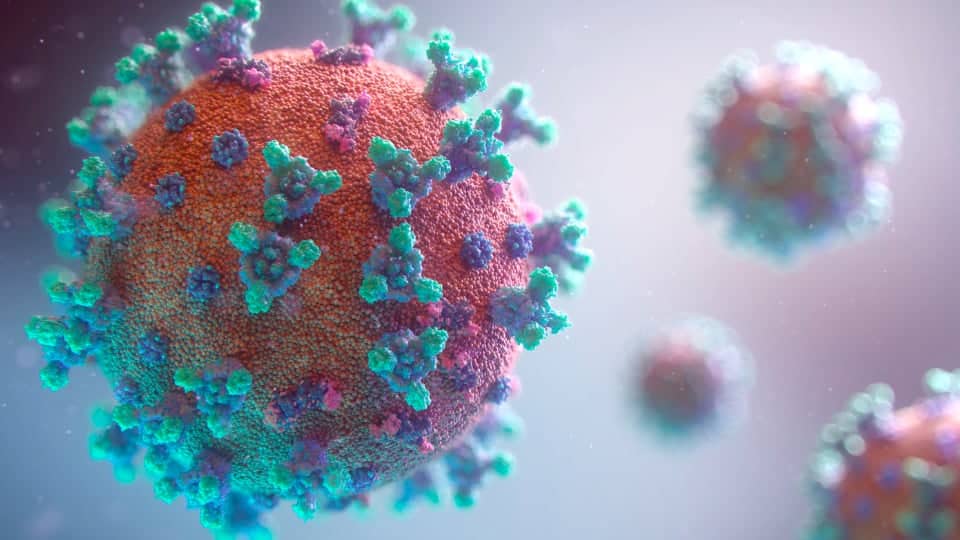Battling the Virus Strengthens Education

The Coronavirus is the firing pin for major innovations. In many educational institutions, less than half of the customary study time is invested in this year’s academic spring semester. There is some distance learning, but in many instances, the faculty is very much dependent on technology which they learn from students rather than the traditional reverse flow.
We give you here an article written by two Michael Czinkotas dealing with the same issue: one is Professor in the McDonough School of Business at Georgetown University, the other is the nephew, a student with most experience gathered in Germany. Here we go:
The virus brings rapid innovation to the education industry. Just consider that traditionally, the entire sector has not distinguished itself with high-speed change. A debate on the cost of tuition was strongly buttressed by the biblical anecdote of the young Jesus Christ ejecting the money changers from the temple. That event was two thousand years ago.
In the university sector, if one could implement time travel for professors and their students, they could be safely delivered to a university town and be rapidly and fully functional in their work. There still remains the amphitheater seating of chairs. There is the black or white board to communicate information. There is the professor upfront moving from one room side to the other, while students take notes or raise their hand indicating readiness for comment. There are still office hours with various functionality and examinations which are a pain to take and to grade.
Any changes to this model require approval by at least four faculty committees, each one of which needs substantial time to investigate the impact potential repercussions of alterations. Then there are reviews by board members, insights from administrators, and the “Fingerspitzengefuehl” of financial liaison. Woe the planner of change who is likely to encounter a lead time of lead. The bottom line: change for education is very difficult and hard to achieve.
How has the education system performed under virus conditions? We can attribute to it very high degrees of rapidity, focus, transparency, and adaptation which lead to significant changes. Students, by the tens of thousands, are shifting their main residence within a week. They complete important selections between clothes, equipment, and learning materials. Faculty members have at the same time solidified new course materials and given major thought to content delivery under entirely new conditions. Administrators had to rapidly find ways to work with complaining and even incensed students and parents.
How to conduct an international program under conditions of severely inhibited travel? How to interact with high mobility groups? How to adjust the delivery of an excellent classroom joke which now has no classroom audience?
Long-term contemplations must now be considered and decided on with a new kind of time framework – we suggest 10 days for adaption of innovation. A textbook which was developed over 40 years now needs a revision time measured in weeks. The virus has given us a way to cope with complexity using extraordinary speed. There are now innovations which are finally accepted and which pump new energy and strength into the body politic. The best infusion is yet to come.
In Germany, educational changes have been seen as the end of the world. Even students at an airport on a school day were seen as a threat to society for missing out on their classes. Now, due to the virus, students must stay at home. Schools whose mission had gradually shifted from being institutions for learning to offering pressure against drugs, against cigarettes, for democracy, and for diversity. It appears that teachers are now beginning to teach again, and students can ask questions which actually are answered. Although in past events of national need, the ability to adapt resources appeared not to exist, this time, the resources, and the teachers are all here, all in support of insights and service of German youth. Support is getting much better.
Also, remember, that once for whatever reason, the toothpaste has left the tube, it won’t go back in, which leads to totally different uses and expectations. Earlier societies and time periods had their own changes, some without much benefit such as bubonic plague and the great influenza epidemic. Other changes triggered much displacement but lead also to eventual improvement to society. Examples are the printing press of Gutenberg, electricity by Edison and planes by the Wright brothers.
The coronavirus leads to adjustments which result in new approaches,
unexpected adaptations and a much wider field of options. We will have new playing fields, new players and new rules. The post-viral times will not necessarily be convenient or tranquil, but there will be many more opportunities for innovation and creativity. We wish you well. Stay safe!
Written by Michael R. Czinkota and Michael L. Czinkota. Michael L. Czinkota is a 9th grade student at the Bischof-Neumann-Schule of Germany.
Bring the best of the CEOWORLD magazine's global journalism to audiences in the United States and around the world. - Add CEOWORLD magazine to your Google News feed.
Follow CEOWORLD magazine headlines on: Google News, LinkedIn, Twitter, and Facebook.
Copyright 2025 The CEOWORLD magazine. All rights reserved. This material (and any extract from it) must not be copied, redistributed or placed on any website, without CEOWORLD magazine' prior written consent. For media queries, please contact: info@ceoworld.biz








